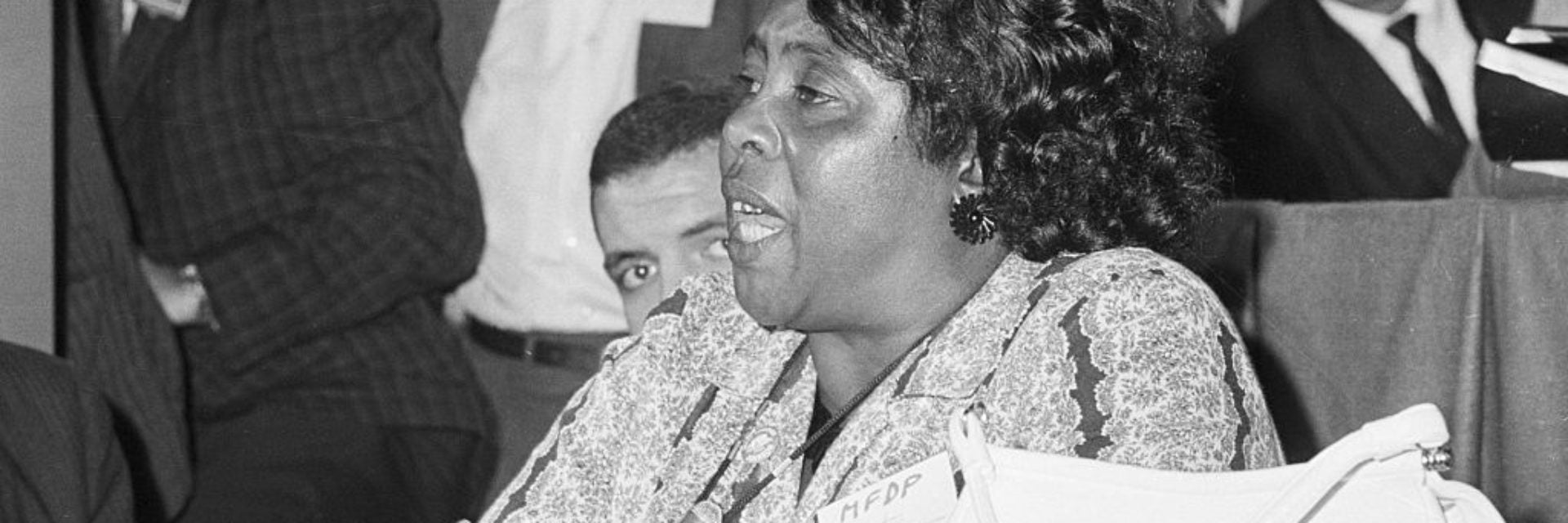Well before the birth of the #MeToo movement led by the brilliant Tarana Burke, and the historic numbers of women—further, women of color—who ran and were elected to public office across the country, Black women have been at the forefront of the fight for social justice. With very little fanfare, Black and Brown women, named and too often unnamed, have birthed justice movements and efforts throughout this country’s history and beyond. From Fannie Lou Hamer to Ella Baker, Shirly Chisholm to Marsha P. Johnson, the historical contributions of Black women for the betterment of all society are innumerable.
Unfortunately, this rich history of dynamic activism has also been wrought with vicious, ill-tempered, and violent attacks against our efforts. Shirley Chisholm received multiple death threats and assasination attempts during her presidential campaign; Fannie Lou Hamer was arrested and beaten several times fighting for the right to vote right here in Mississippi; and Marsha P. Johnson’s murder is still unsolved to this day.
These attacks on the leadership of Black women in communities across the country exist in opposition to the very culture of togetherness our communities need. This approach to political discourse and civic engagement is rooted in toxic masculinity, good-ole boys networks of male chauvinism, sexism and patriarchy that is anchored in white supremacy and has contributed to the continued exploitation and oppression of poor and working class communities of color.
Let’s be clear: Our communities deserve better than the continuation of that culture. It doesn’t serve any of us.
No more evident that this culture is alive in Mississippi are the recent comments made by Malcolm Johnson, a candidate for County Supervisor in Hinds County Mississippi, in response to rumors that I might run for a county supervisor seat.
“What she needs to do is learn to be a woman. A woman needs to be a woman. Supervisor’s a man’s job,” Johnson said.
Malcolm Johnson asserts his comment was made in jest while being interviewed on a local talk radio show to discuss his candidacy. A joke or otherwise, his comment is problematic for many reasons. It perpetuates the idea that women are inferior, which impacts local and state hiring practices, the gender wage gap, how sexual harassment is addressed or not addessed, and of course policy approaches that directly impact women, including reproductive justice and maternal health to name a few. Moreover, it attempts to erase the leadership and value of women, specifically, Black women in political office and in our communities.
What we must ask ourselves as Mississippians is how can someone govern effectively, and represent the interests of their constituents, all of their constituents—women, poor, LGBTQ, disabled, Black or Brown, if they believe that people should stay in their place or only have value based on the assumptions and stereotypes that elected officials and society assigns them. Why would we want an elected official that tells us our place is not to fight for positive social change for ALL Mississippians?
I am a woman. I am Black. I love Mississippi, and I will fight for all Mississippians for the rest of my life, because that is what the women, communities of color, poor and working class people of Mississippi have raised and taught me to do. If Mr. Johnson is threatened by that kind of fierce leadership, then he is not fit to represent us.
Thank you. Next.
Rukia Lumumba is the Executive Director of the People’s Advocacy Institute, co-leads the Electoral Justice Project of the Movement for Black Lives, and is a member of the Malcolm X Grassroots Movement where she coordinates the Jackson’s People’s Assembly for community-led governance.
